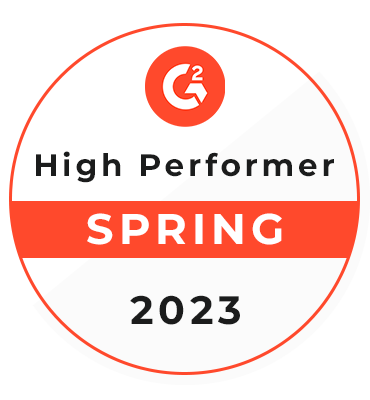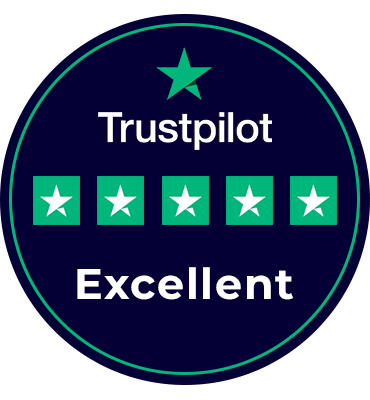Best AI Chatbots for Healthcare: Transforming Patient Care in 2025
The healthcare industry is undergoing a profound transformation, driven by the rapid advancements in Artificial Intelligence (AI). From streamlining administrative tasks to enabling predictive analytics, AI is reshaping the way healthcare providers deliver care. Among these cutting-edge innovations, AI chatbots for healthcare are emerging as one of the most impactful tools. These intelligent virtual assistants not only engage patients more effectively but also reduce operational costs, improve service efficiency, and provide personalized support around the clock.
As hospitals, clinics, telemedicine platforms, and insurance providers increasingly embrace digital solutions, AI chatbots are becoming essential in modern healthcare. They help patients schedule appointments effortlessly, get accurate symptom assessments, manage medications, and even receive mental health support. In this comprehensive guide, we will delve deep into the world of healthcare AI chatbots, exploring their benefits, must-have features, real-world use cases, future trends, and a curated list of the best AI chatbots for healthcare in 2025.
What is an AI Chatbot for Healthcare?
An AI healthcare chatbot is more than just a virtual assistant—it’s a digital healthcare companion. Powered by AI, Machine Learning (ML), and Natural Language Processing (NLP), these chatbots can:
- Understand and respond to medical queries naturally
- Provide personalized advice and recommendations
- Integrate with hospital systems like EHR and EMR
- Offer 24/7 patient support
Example: A patient asks, “What should I do if I have a fever and headache?” Instead of generic advice, the chatbot can analyze symptoms and recommend rest, medication, or urgent doctor consultation.
Benefits of AI Chatbots in Healthcare
Healthcare organizations worldwide are adopting AI chatbots for their wide-ranging advantages:
1. 24/7 Patient Support
Patients get instant assistance without waiting in queues. Chatbots help with:
- Appointment scheduling
- Symptom checks
- General health advice
2. Appointment Scheduling & Reminders
Automates bookings, cancellations, and notifications, freeing staff from repetitive tasks.
3. Symptom Checking & Triage
AI chatbots analyze symptoms and suggest:
- Resting at home
- Booking a teleconsultation
- Visiting the emergency room immediately
4. Medication Management
Reminds patients about medication intake, dosage schedules, and provides drug information.
5. Cost-Effective Operations
Reduces reliance on call centers and administrative staff, letting healthcare professionals focus on critical cases.
6. Mental Health Support
Chatbots like Woebot provide conversational therapy to manage stress, anxiety, and depression.
7. Data Collection & Analytics
Collects patient data, analyzes patterns, and provides insights for better care delivery.
How Are AI Chatbots Used in Healthcare?
AI chatbots are revolutionizing healthcare by providing valuable support for both patients and healthcare professionals. Their versatility and intelligence allow them to improve healthcare delivery, save time, and enhance patient experiences, making them a crucial tool for organizations working with the Best Healthcare Web Design Agency in the UK to create user-friendly and efficient digital healthcare platforms.
For Patients:
- Access Prescriptions, Test Results, and Appointments: Patients can instantly retrieve their medical records, upcoming appointment schedules, and prescription details without waiting in line or calling hospital staff.
- Preliminary Symptom Checks and Guidance: Chatbots can analyze symptoms using AI-driven algorithms and provide guidance on whether to rest at home, book a teleconsultation, or seek emergency care.
- Mental Health Support Anytime: AI chatbots offer on-demand emotional support, stress management exercises, and mental health resources, helping patients cope with anxiety, depression, or other mental health challenges.
For Healthcare Providers:
- Automate Administrative Tasks: Chatbots handle registration, billing queries, insurance information, and follow-ups, freeing healthcare staff to focus on direct patient care.
- Integration with EHR and EMR Systems: AI chatbots seamlessly connect with electronic health records, providing doctors and nurses with instant access to patient data for faster, informed decision-making.
- Reduce Workload and Improve Efficiency: By managing routine tasks, chatbots reduce administrative burden, minimize errors, and streamline hospital operations.
Additional Applications: Beyond patient and staff support, AI chatbots contribute to public health awareness campaigns, preventive care education, vaccination reminders, and lifestyle guidance, helping communities stay informed and proactive about their health.
Key Features of the Best AI Healthcare Chatbots
To maximize their impact, top-performing healthcare chatbots come with a set of essential features that ensure security, efficiency, and personalized care:
- HIPAA Compliance: Ensures sensitive patient information is fully protected and adheres to strict healthcare privacy regulations.
- Natural Language Processing (NLP): Enables chatbots to understand and respond to queries naturally in multiple languages, providing clear and accurate guidance.
- Integration with Hospital Systems: Works seamlessly with EHR, EMR, CRM, and telemedicine platforms for smooth workflow and centralized data management.
- Multi-Platform Support: Available on websites, mobile apps, WhatsApp, Messenger, and even voice assistants like Alexa and Google Assistant, making healthcare accessible anytime, anywhere.
- Personalization: Remembers patient history, preferences, and previous interactions to deliver tailored advice and improve engagement.
- Analytics Dashboard: Allows hospitals to monitor chatbot interactions, measure response times, track patient satisfaction, and gain insights for better decision-making.
Use Cases of AI Chatbots in Healthcare
AI chatbots are proving to be indispensable across various healthcare scenarios, providing practical solutions for patients, medical staff, and administrative workflows. Here are some of the most impactful use cases:
- Virtual Health Assistants: Acting as digital nurses, chatbots offer instant health advice, treatment guidance, and medication instructions, helping patients make informed decisions quickly.
- Telemedicine Support: Chatbots streamline the patient intake process by collecting initial symptoms, medical history, and connecting patients to the right healthcare professionals for online consultations.
- Insurance & Billing Assistance: They simplify insurance claims, explain policies, and handle billing queries, saving patients from tedious paperwork and reducing administrative workload.
- Chronic Disease Management: Chatbots monitor conditions like diabetes, heart disease, and asthma by sending reminders, tracking vitals, and providing lifestyle or medication tips to support long-term health management.
- Emergency Support: In critical situations, chatbots can perform preliminary triage, assess urgency based on symptoms, and direct patients to the nearest hospital or emergency care facility.
Challenges of AI Chatbots in Healthcare
Despite their advantages, AI chatbots face certain challenges that healthcare providers must consider before deployment:
- Data Privacy Risks: Managing sensitive medical records requires robust security measures to prevent breaches and ensure compliance with regulations like HIPAA and GDPR.
- Accuracy & Reliability: Chatbots must provide precise medical advice; any error or misleading guidance can impact patient safety.
- Patient Trust Issues: Some patients may hesitate to rely solely on AI and prefer human interaction, which can affect adoption rates.
- Integration Complexity: Connecting chatbots seamlessly with existing hospital systems, EHR/EMR platforms, and other software can be technically challenging and requires careful planning.
Future Trends in AI Healthcare Chatbots (2025 & Beyond)
The future of AI chatbots in healthcare is bright, with emerging technologies promising to make medical services more intelligent, accessible, and patient-focused. Here are the key trends to watch:
- Generative AI Chatbots: These advanced chatbots can hold human-like conversations, providing natural, context-aware interactions that make patients feel understood and supported.
- Voice-Based Virtual Doctors: Voice-enabled chatbots allow hands-free medical support, helping patients check symptoms, receive guidance, or book appointments using voice commands on smart devices.
- Multilingual Chatbots: Global accessibility is enhanced as AI chatbots communicate fluently in multiple languages, breaking down language barriers for diverse patient populations.
- AI-Driven Predictive Diagnosis: Leveraging predictive analytics, chatbots can identify potential health risks before symptoms appear, enabling early intervention and preventive care.
- Wearable Integration: AI chatbots connected to wearable devices can monitor vital signs and health metrics in real-time, alerting both patients and doctors to any anomalies promptly.
Top AI Chatbots for Healthcare in 2025
Here are some of the leading AI chatbots transforming healthcare today:
- Ada Health: Provides accurate symptom assessment and personalized health guidance for patients worldwide.
- Babylon Health: Combines AI with telemedicine services to offer virtual consultations and health monitoring.
- Buoy Health: A smart symptom checker that guides patients to the most appropriate care based on AI analysis.
- Florence: Helps patients manage medications with timely reminders and adherence tracking.
- Sensely: A virtual nurse featuring avatar support and voice interaction to assist patients in hospitals and clinics.
- Woebot: A mental health chatbot using cognitive behavioral therapy (CBT) techniques to support emotional wellbeing.
Take the Next Step: If you’re a healthcare provider looking to modernize your services, Fulminous Software can help you build a custom AI chatbot tailored to your organization’s needs. Enhance patient engagement, streamline operations, and stay ahead in the digital healthcare revolution. Contact us today to get started!
How to Choose the Right AI Chatbot for Your Healthcare Organization
Selecting the right AI chatbot is crucial for improving patient care, streamlining operations, and ensuring long-term success. Consider these key factors when making your decision:
- Scalability: Ensure the chatbot can grow alongside your hospital or clinic, handling increasing patient loads and expanding services as your organization evolves.
- Compliance: Choose a solution that is fully HIPAA and GDPR compliant to protect sensitive patient data and maintain regulatory standards.
- Customization: The chatbot should be adaptable to your specific requirements, providing tailored responses, workflows, and features that match your healthcare services.
- Integration: Seamless compatibility with existing systems such as EHR, EMR, CRM, and telemedicine platforms ensures smooth operations and real-time access to patient data.
- Vendor Support: Opt for a provider offering ongoing updates, maintenance, and support to keep your chatbot reliable, secure, and up-to-date with the latest technologies.
Why Choose Fulminous Software for AI Healthcare Chatbot Development
At Fulminous Software, we specialize in creating intelligent, secure, and scalable AI chatbots for healthcare organizations. Here’s why leading hospitals, clinics, and telemedicine providers trust us:
- HIPAA-Compliant Solutions: Our chatbots are designed with security at the forefront, safeguarding sensitive patient information.
- Custom Chatbot Development: We build AI chatbots tailored to your unique healthcare needs, ensuring personalized patient experiences and operational efficiency.
- Seamless Integration: Our solutions integrate effortlessly with EHR, EMR, and telemedicine platforms, enabling smooth workflows and real-time insights.
- Scalable & Cost-Effective: Our chatbots grow with your organization, providing long-term value while optimizing costs.
- Proven Track Record: With years of experience in healthcare IT solutions, we have successfully delivered AI chatbot projects that enhance patient engagement and streamline hospital operations.
Ready to transform your healthcare services? Partner with Fulminous Software to implement a cutting-edge AI chatbot that improves patient care, reduces costs, and boosts operational efficiency. Contact us today to get started!
Conclusion
AI chatbots are transforming healthcare by making it more accessible, efficient, and cost-effective. From symptom checkers to mental health support, the best AI chatbots in 2025 enhance patient care and reduce staff workload.
If you are a healthcare provider, Fulminous Software can help you build intelligent, secure, and scalable AI chatbot solutions tailored to your organization.
Frequently Asked Questions (FAQs) About AI Chatbots in Healthcare
Q1. What is an AI chatbot for healthcare?
An AI chatbot for healthcare is an intelligent virtual assistant powered by artificial intelligence, machine learning, and natural language processing. It helps patients book appointments, check symptoms, manage medications, and even receive mental health support, while assisting healthcare providers with administrative tasks.
Q2. How can AI chatbots improve patient engagement?
AI chatbots provide 24/7 support, offer personalized health advice, send medication reminders, and guide patients through telemedicine services. This constant availability and personalized care help improve patient satisfaction and engagement.
Q3. Are healthcare AI chatbots safe and HIPAA-compliant?
Yes, when developed by trusted providers like Fulminous Software, AI chatbots are fully HIPAA and GDPR compliant. They securely handle sensitive patient data while maintaining privacy and regulatory standards.
Q4. Can AI chatbots replace doctors?
No, AI chatbots cannot replace doctors. They act as supportive tools, handling routine queries, providing preliminary guidance, and assisting with triage, allowing healthcare professionals to focus on critical medical care.
Q5. How much does it cost to develop a healthcare AI chatbot?
The cost of developing an AI chatbot depends on features, complexity, and integration requirements. Typically, healthcare AI chatbot development ranges from $10,000 to $100,000+, with scalable and custom solutions available from specialized providers like Fulminous Software.
Q6. What are the future trends in AI healthcare chatbots?
Future trends include generative AI for human-like conversations, voice-enabled virtual doctors, multilingual support, predictive diagnosis, and integration with wearable devices for real-time health monitoring.

 Verified
Expert in Software & Web App Engineering
Verified
Expert in Software & Web App Engineering


